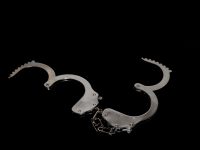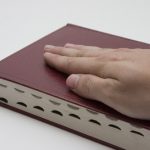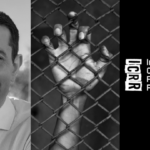Case Thrown Out Due to Illegal Arrest

As previously discussed, courts have the power under section 138 of the Evidence Act 1995 to exclude evidence obtained by police officers in the course of an unlawful arrest.
The case of R v William John Bennett (2015) is an example of police being denied the ability to use evidence where they acted illegally.
Facts of the case
Three police officers were in a car driving along Glebe Point Road when they passed the defendant, William Bennett. Police claim Mr Bennett “puffed his chest out and raised both his fists towards the police vehicle”. Police then stopped the car to “have a chat to him about his behaviour.”
Constable Pollock says he jumped out of the car and stated, “Mate, why did you raise your fists up at us?” Pollock claims that Bennett said, “Fuck off. You’re not the police,” to which Pollock replied, “Mate, stop there.”
As Bennett started to walk away, Pollock approach and placed his hand on Bennett’s shoulder. Pollock claimed that Bennett turned around to punch him, so he kicked Bennett’s legs out from under him, got on top of him and said he was under arrest for assaulting a police officer.
In the Local Court
The case went to a defended hearing and Bennett was found guilty of assaulting police.
He then appealed the case to the District Court.
In the District Court
A relevant issue on appeal was the time Bennett was arrested.
The District Court noted that:
“An arrest occurs whenever it is made plain by what is said and done by the police officer that the suspect is no longer a free person.”
The court cited R v Donahue which found that an arrest can occur by actions or words alone, so long as it is clear the subject is not free to leave.
When did Mr Bennett’s arrest occur?
Constable Pollock testified that he found Bennett’s alleged act of puffing out his chest and raising his fists to be “offensive”, adding that he only wanted to talk to Bennett at that time and did not consider him under arrest.
The appellant’s lawyers, on the other hand, argued that the act of approaching Bennett, telling him to stop and placing a hand on his shoulder was enough to constitute an arrest.
They further argued that the arrest was illegal because the officer could not have suspected on reasonable grounds that Bennett had engaged in “offensive conduct”, and any evidence of Bennett’s alleged ensuing assault should be excluded because it arose during the course of an illegal arrest.
Judgment
The Court found that the words spoken to William, namely, “Mate, stop there”, clearly constituted an attempt to deprive him of his liberty and – coupled with the officer’s act of following Bennett and placing a hand on his shoulder – constituted an arrest.
The Court further found it was not a proper exercise of the officer’s powers to arrest Bennett in the circumstances, and the arrest was therefore illegal.
Improperly or illegally obtained evidence
The next question for the court was whether it should exclude evidence of Bennett’s ensuing alleged act of assaulting police.
In determining that question, section 138 of the Evidence Act required the court to assess whether the undesirability of admitting evidence of that type outweighs the desirability of its admission.
In making that determination, the court must consider:
- The importance and value of the evidence to the overall proceedings.
- The extent to which the law was broken or the level of impropriety used in obtaining the evidence.
- Whether the breach of law or impropriety was done deliberately or recklessly.
- The ease or difficulty of obtaining the evidence without resorting to the impropriety or contravention used.
In the case at hand, Pollock’s actions were found to be a deliberate, unlawful deprivation of Bennett’s liberty when the officer knew, or should have known, that his actions were illegal.
The Court found that it was undesirable to admit evidence obtained in that way and therefore ruled any evidence of Bennett assaulting police to be inadmissible.
The appeal was upheld and Bennett was found not guilty of all charges.






